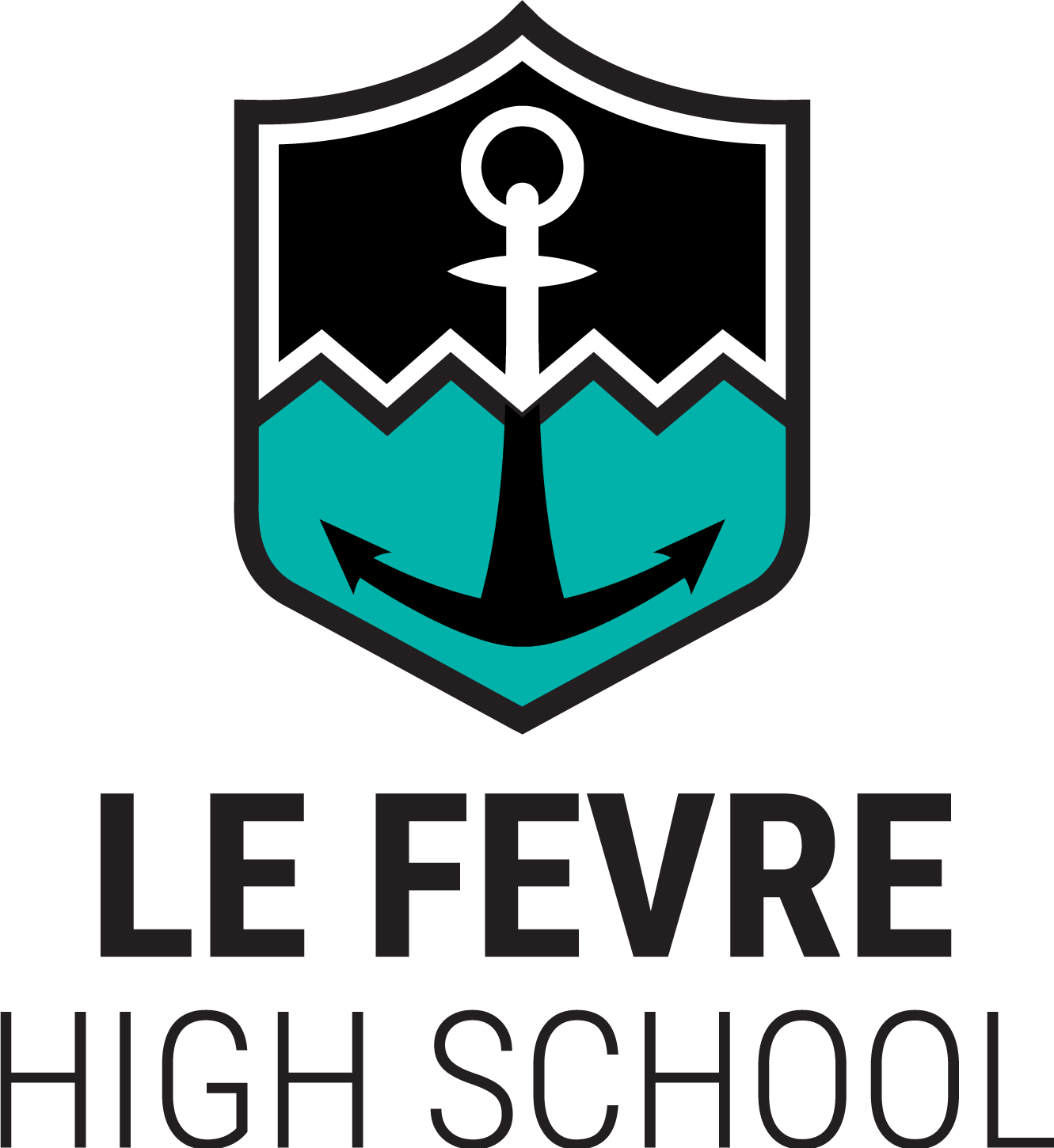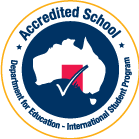Learn more about the subjects available below.
Dance - Performing Arts
Introduction to the study of Dance as a Performing Art: technique, performance, composition and appreciation as an audience.
If you have ever wanted to learn how to dance, this is your opportunity! By the end of year 7, students will have the chance to learn various styles of dance including Hip Hop, Contemporary and Cultural Dance. Through practical workshops and theoretical lessons students will:
- Apply the “Elements of Dance” and choreographic devices to create their own compositions in groups
- Evaluate how different cultures from around the world and throughout time communicate and express themselves through Dance
- Analyse Dance company performances to identify how technical and production elements create aesthetic appeal
- Perform their own choreographed sequences and learn the technical and expressive skills appropriate to various dance styles
ASSESSMENT
Participation in workshops, group composition tasks, performance, process journal and written reports using IBMYP criteria aligned with the Australian curriculum.
Drama - Performing Arts
By the end of Year 7, students will have explored mime, voice, improvisation and movement in a practical learning environment. They will also be introduced to the technical side of theatre and gain a basic insight into stagecraft elements such as lighting, sound, costume and set design. Students will have the opportunity to apply this knowledge in drama to make and perform. They will also explore different cultures, times and places and communicate their understandings through drama. Students will collaborate with one another to devise, interpret and perform drama. Students will manipulate the elements of drama, narrative and structure to express and communicate meaning. They will apply different performance styles and conventions to convey status, relationships and intention. Performance skills and design elements will be applied to shape and focus theatrical effect for an audience.
ASSESSMENT
Workshops, mime, improvisation, performance, written reviews, reflective journals and written reports using IBMYP criteria aligned with the Australian curriculum.
Music - Performing Arts
Music in Year 7 provides an opportunity to explore and play a variety of musical instruments through practical workshops and equips students with the fundamentals of music theory and history. A range of music technology is used as a part of the composition component of the course and students will enjoy the satisfaction of creating their own pieces. Students will also have the opportunity to rehearse and perform songs as a class and in small groups. This course caters for students of all ability levels and experience.
Instrumental lessons are provided to all music students for a variety of instruments free of charge. These lessons will take place within school hours and are required to support students with the practical component of the course. If a student is already receiving lessons privately, school based instrumental lessons are not necessary.
ASSESSMENT
Participation in group composition tasks, performances, tests and written assignments using IBMYP criteria and aligned with the Australian curriculum.
Visual Arts
Students explore how Artists communicate through Visual Arts and Media Arts.
Knowing: the Elements of Art, artworks from different cultures/times/places, communication techniques.
Developing Skills: using a range of media- painting, drawing, mixed media, printing. Exploring techniques and processes.
Thinking Creatively: plan their art making in response to exploration of techniques, and creating meaning.
Reflecting: responding to artist’s works, and their own works.
ASSESSMENT
Finished art pieces, written and oral responses that demonstrate a student’s specialized vocabulary, IBMYP process journal.
Design: DESIGN & TECHNOLOGY
The course develops familiarity with a range of materials, tools, machines and processes as well as skills in design, problem solving, decision-making, researching and the application of information.
Students are given experience in working with various materials and systems (wood, metal, plastics, electrical circuits and Computer Aided Design). Students design and make projects as well as learning about tools, processes, materials and electricity. Working cooperatively and safely is emphasised.
ASSESSMENT
Assessment in each area is based on the ACARA Achievement Standards
· Knowledge and Understanding
· Processes and Production Skills
Assessment Types include:
Assessment tasks, practical work and analysis of work completed.
Design: Digital Technology
Digital Technologies empowers students to shape change by influencing how contemporary and emerging information systems and practices are applied to meet current and future needs.
This subject is an integrated approach to teaching technology. The Digital Technologies Curriculum is introduced to students via the following:
- Block Coding using Web-based Learning Tools – lightbot.lu & code.org
- General-purpose Programming Language – Python
- Pseudo Code – Plain English planning using both Written & Graphical means
- Introduction to Robotic Operations – BBC Microbits
ASSESSMENT
Assessment in each area is based on the ACARA Achievement Standards
- Knowledge and Understanding
- Processes and Production Skills
Assessment Type include:
Assessment tasks, practical work, and analysis of work completed.
Design: Food & Textiles
Home Economics is a compulsory curriculum across one term and this course provides a framework for all young Australians to understand and value the importance of a variety of foods and fibers, sound nutrition principles related to Australian Guide to Healthy Eating and safe practices including maintaining personal hygiene and clean workspaces. Students will develop knowledge and skills to plan, prepare, produce and serve healthy foods as well as textile items, using a range of preparation tools, equipment and techniques to effectively and safely make designed solutions for sustainability.
The main two areas of study are:
Food: Students are introduced to issues related to safety and hygiene in the food area. Fundamental food preparation techniques are used during practical lessons to design, plan and produce quality healthy plant-based snack.
Textiles: Students will have the opportunity to use appropriate techniques and sewing machine equipment to create a textile item. They will learn compare and evaluate similar textile products, draw patterns, concepts and design as well as an appreciation of textiles and its uses.
ASSESSMENT
Assessment in each area is based on the ACARA Achievement Standards
· Knowledge and Understanding
· Processes and Production Skills
Assessment Types include:
Assessment tasks, practical work and analysis of work completed.
English
In Year 7 English, students will engage in the three strands of the Australian English Curriculum; Language, Literature and Literacy.
Students will read, view and analyse a range of texts eg Poetry, Prose, Drama, Visual, Short Pieces, Multimedia and Electronic texts.
Students will listen to, evaluate and produce a range of spoken texts, eg Anecdotes, Debates, Multimedia Presentations, Poetry Performances, Formal Speeches and Social Issue Reports.
Students will also compose a range of texts – written and multimedia for particular audiences, purposes and contexts.
The nature of the texts students will study and produce transition from primary style texts and gradually increase in complexity to prepare students for year 8 texts. There will always be an emphasis on exploring issues relevant to adolescents and an approach that allows students to engage with aspects of our society including its diverse cultural aspects. At each year level, students will develop skills in understanding the language of different texts and acquire strategies to help them compose their own texts.
Study will also include a reading program aimed at increasing student literacy and reading proficiency. This will be supported by programs such as Tactical Teaching Reading and Literacy Pro.
ASSESSMENT
Students will be assessed according to the Achievement Standard in the Australian Curriculum for Year 7 English under both:
- Receptive modes (listening, reading and viewing)
- Productive modes (speaking, writing and creating)
HUMANITIES AND SOCIAL SCIENCES
Humanities and Social Sciences (HASS) is a subject that combines History, Geography, Civics and Citizenship and Economics and Business. Each of these subjects is taught throughout the year within their own distinct units.
In Year 7 Students will engage in the following topics:
History: Students will study history from the time of the earliest human communities to the end of the ancient period, approximately 60 000 BCE – c.650 CE. They will explore the ways we investigate the ancient past, Ancient Egypt as well as touching on Ancient China and Ancient Aboriginal Culture.
Geography: The course adopts an inquiry-based approach to the importance of Water and the place it has in our world as well as the concepts of Place and Liveability. A strong emphasis will be placed on global thinking with local action.
Civics and Citizenship: This course will explore the diversity of Australia, the role of The Constitution and the ways that we safeguard the rights and responsibilities of our people. A strong focus will be placed on action and active engagement in being part of a community.
Economics and Business: This unit will have students explore the concept and value of work, how we can be entrepreneurs and the relationship between customer and producers. A strong focus will be put on practical application of these concepts.
ASSESSMENT
Students will be assessed according to the distinct Achievement Standard for each of the subjects represented in the Australian HAAS Curriculum:
- History
- Geography
- Civics and Citizenship
- and Economics and Business.
Language Acquisition
“You can never understand one language until you understand at least two.” – Geoffrey Willans (Author and Journalist)
Anyone can learn another language! This course aims to give students a chance to have fun using Indonesian to communicate on topics relevant to them. We open their eyes to the possibility of being bi-lingual or even multilingual, depending on languages they already know. Previous knowledge of Indonesian is valued but certainly not essential.
Through developing their ability to speak, listen, read, and write in Indonesian, students will grow in confidence and skill. As a bonus, they will strengthen their understanding of English and gain insights into how English works.
Students will experience Indonesia’s culture through a variety of interesting cultural experiences.
ASSESSMENT
Students will be assessed using the IBMYP Criteria in the following areas:
- Comprehending spoken and visual text
- Comprehending written and visual text
- Communicating in response to spoken, written and visual text
- Using language in spoken and written form
Mathematics
In Year 7 Mathematics, students solve problems involving the comparison, addition and subtraction of integers. They make the connections between whole numbers and index notation and the relationship between perfect squares and square roots. They solve problems involving percentages and all four operations with fractions and decimals. They compare the cost of items to make financial decisions. Students represent numbers using variables. They connect the laws and properties for numbers to algebra. They interpret simple linear representations and model authentic information. Students describe different views of three-dimensional objects. They represent transformations in the Cartesian plane. They solve simple numerical problems involving angles formed by a transversal crossing two lines. Students identify issues involving the collection of continuous data. They describe the relationship between the median and mean in data displays.
Students use fractions, decimals and percentages, and their equivalences. They express one quantity as a fraction or percentage of another. Students solve simple linear equations and evaluate algebraic expressions after numerical substitution. They assign ordered pairs to given points on the Cartesian plane. Students use formulas for the area and perimeter of rectangles and calculate volumes of rectangular prisms. Students classify triangles and quadrilaterals. They name the types of angles formed by a transversal crossing parallel line. Students determine the sample space for simple experiments with equally likely outcomes and assign probabilities to those outcomes. They calculate mean, mode, median and range for data sets. They construct stem-and-leaf plots and dot-plots.
CONTENT
The following topics provide the framework for learning in Year 7 Mathematics:
- Number and Place Value
- Real Numbers and Algebra
- Financial Maths
- Patterns and Algebra
- Linear relationships
- Measurement
- Geometric reasoning
- Chance
Assessment
Students are assessed against the Australian Curriculum Mathematics achievement standards. Evidence of student achievement will be gathered through tests, investigations and other assessment tasks. Students are tested on their knowledge of patterns and algebra, linear relationships and their geometric reasoning. They investigate magic squares and patterns on a chess board, the costs involved with making the 'best' carrot cake, and use area and volume to design a garden, writing reports on their findings.
health and physical education
Health and Physical Education enables students to develop skills, understanding and willingness to positively influence the health and wellbeing of themselves and their communities. Students apply movement skills, concepts and strategies across a range of movement contexts, enabling them to participate confidently and competently in physical activities. When learning in movement contexts, students gain skills, understanding and dispositions that support lifelong physical activity participation and enhanced movement performance. They also develop personal and social skills through interacting with others in classroom and movement contexts. Health and Physical Education addresses factors that influence the health, safety, relationships, wellbeing and physical activity patterns of individuals, groups and communities. Students develop the understanding to challenge discrimination, assumptions and stereotypes. They gain skills to take positive action regarding diversity, inclusion, consent and respect in different social contexts.
Topics in this course include:
- Mental Health and Wellbeing
- Relationships and Sexuality (SHINE Curriculum)
- Food and Nutrition
- Games and Sports (various)
- Lifelong Physical Activities: Introduction to Fitness Components and Training Methods
Challenge and Adventure Activities: Team Building Games
Soccer Program
The Soccer Program enables students with a passion for soccer to develop knowledge, understanding and skills in all aspects of soccer including playing, rules, tactics, fitness components and training principles. Students within the program are given the opportunity to enhance their fitness development and participation in statewide soccer competitions. Topics covered in this course include:
- Skill and Performance development
- Performance Analysis
- Fitness
- Nutrition for Soccer
- Injury Prevention and Management
- Coaching and Refereeing
Assessment tasks will be aligned to the Health and Physical Education Achievement Standards within the Australian Curriculum Framework, and students will undertake the study of Health topics as per the HPE curriculum in the compulsory semester.
Science
In Year 7 Science, students describe techniques to separate pure substances from mixtures. They represent and predict the effects of unbalanced forces, including Earth’s gravity, on motion. They explain how the relative positions of Earth, the sun and moon affect phenomena on Earth. They analyse how the sustainable use of resources depends on the way they are formed and cycle through Earth systems. They predict the effect of human and environmental changes on interactions between organisms and classify and organise diverse organisms based on observable differences. Students describe situations where scientific knowledge from different science disciplines and diverse cultures has been used to solve a real-world problem. They explain implications of the solution for different groups in society.
Content
The following topics provide the framework for learning in Year 7 Science:
- Separating Mixtures
- Water and Resources
- Classification of Living Things
- Food Webs and Food Chains
- Forces and Simple Machines
- Forces and Space
- Cycles of the Earth, Moon and Sun
Assessment
Students are assessed against the Australian Curriculum Science achievement standards. Evidence of student achievement will be gathered through tests, assignments and practical reports. Students are tested on their knowledge of separating mixtures, forces and the cycles of the sun, moon and Earth. They create a poster on the water cycle and other renewable and non-renewable resources. They design and classify an animal and investigate changes to food chains and food webs when their animal is introduced into a chosen ecosystem. They design an investigation to explore static friction and other resistive forces and write a practical report outlining their methods and analyse their findings







